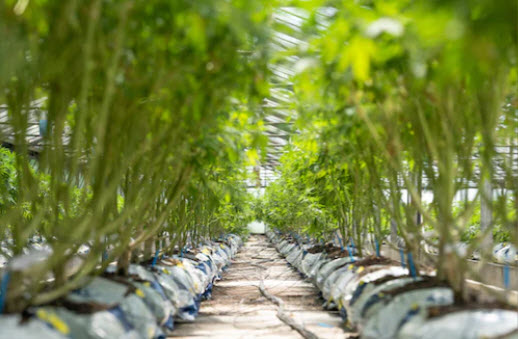There is already considerable grumbling in the German cannabis industry about what the new pending law will and will not do for full normalization if not the operating business as it exists now
There are two basic precepts to keep in mind as you read this article. The first is that complaining is a German national sport. The second is that cannabis legalization is messy, everywhere, and nobody gets it right, even with amendments. See Canada, if not the North American experiment more generally. In Europe, see Holland and Switzerland, and of course, Deutschland to date. The twists and turns on the medical use law, cultivation and even distribution to date have been worthy of an opera – certainly a book.
With that in mind, here is what to understand generally about what is going on in the trenches in Germany right now.
CanG Basics
The draft law is called, aus Deutsch, Cannabis Gesetz, or Cannabis Law. The link here is handy because it also shows the comments of various groups and individuals on the same.
Everything is in German, but this is where auto translators come in handy for those who want to do the wading.
Here is what most people need to know. The law will remove cannabis from the Narcotics Act. This will begin to allow some flexibility on how cannabis can be accessed. Currently this is highly problematic, since the 1961 Convention on Narcotic Drugs prevents the sale of cannabis unless it is a GMP, pharmaceutical product. This is why the German clubs now proposed in CanG will not be able to actually sell product, but rather memberships pegged to purchases. It is a dodge, but it was meant to be one that both lawyers and politicians could agree on.
Generally, most adults will be able to buy up to 50 grams of cannabis a month, 25 grams at a time, from one club that they pay dues to, and will also be allowed to grow three plants at home. For people who have lived on the edge of all of this, namely patients, this certainly offers a degree of relief that is sorely needed. The sickest patients will still be left out in the cold, but certainly, this is a step in the right direction.
There is also a fair amount of excitement about CanG within the medical industry at this point, itself undergoing both consolidation and ongoing price drops of product within the German pharmacy distribution system. Namely, that supposedly more doctors will be willing to prescribe cannabis since it will not be a narcotic. How this pans out remains to be seen. There are more than a few doctors with distribution companies who are betting that this is a good thing, along with, judging from the job ads appearing on professional networks, regular pharma distributors now looking to expand their product lines. The industry is certainly becoming more competitive and commoditized, which is a good thing. Currently, the pricing model here is also based on THC content, which again, also penalizes uncovered patients. Even the ones that supposedly should be prioritized for care. See my own recent two plus year battle with my health insurer (one of the largest in the country) and my now next stage battle with them to cover costs during the fight. So far, this large segment of people caught up in the debate have been essentially ignored or pushed to the side with the attitude of “we are giving you a lot already.”
The Cannabis Clubs
There is nobody who understands both the mechanics of safe indoor growing and the complexities of German law who thinks that this is going to be easy, profitable, or not laden with risk in every direction. Chief among these is that the regulatory thicket is going to require legal help (no matter what), for anyone who dares into this territory. Beyond this, the idea that mini jobbers could actually maintain this kind of grow is something that, cynically, the established industry in Berlin has managed to sneak into this discussion, without caring that this also dooms this part of the industry to a hell that is likely to ruin lives. Literally.
For those who do not understand this discussion, “mini jobs,” are a uniquely German phenomenon that essentially dooms the low skilled to basic living conditions. If you are at the JobCenter (German welfare and the lowest level of unemployment, literally at poverty level), you are allowed to take on a mini job to swap out your government cash payment for food for one of these low paid positions. In other words, why do them? There is a certain cynicism here of course. Namely that unemployed patients will jump at the chance to work around the plant for 20 hours a week, even for a pittance. The government picks up the check for these people’s living arrangements, healthcare, and heating too.
The idea that this population is going to be the workforce upon which the heaviest penalties will fall for lack of compliance is appalling. And it will. Here is the reason. It is going to be a nightmare to even contemplate how to estimate income for such clubs. If everyone one of the 500 patients buys the max per month, that is one thing. If everyone doesn’t?
The most likely thing this is going to create is a group of people who jump into this thinking its going to be cool and then are overwhelmed with a training requirement that, while companies are already lining up to serve this need too, is going to have negligible benefits for the bottom line.
Not to mention a population that is very likely to include patients whose health insurance still refuses to cover their medicine. While many patients could, theoretically, survive on the amount they could legally obtain from the clubs, being on benefits does not allow a cannabis budget. This is one of the reasons that the clubs are right on the edge of a tricky situation that, by definition, will also be hard to prosecute, and as a result, will create a second grey market.
Let’s get real, for a second.
Will some clubs succeed? Yes. Is this going to be an area strewn with legal problems and more complications? Yes. But since this is par for the course in the industry generally, this is also a clarion call to people who figure out a way to surf the course.
Word to the wise – none of this is going to be cheap. Investors, including foreign investors, are already getting the message, and while it may be hugely entertaining, this is not a part of the market expected to be commercial, at least initially. How the best run groups transition with further changes in the law is a different story. Especially given what else is now going on.
CanG Part II
What most people within the commercial part of the industry are anticipating right now – namely B2B – is that the removal of the designation of cannabis will lead more patients and doctors to seek a medical route to cannabis rather than a social club. This is probably not even true in Berlin. Regardless, there will be an uptick in sales, as much as people with disposable income are willing to go to the trouble of finding a doctor and pharmacy to buy their products from.
Beyond this, the second part of the legalization step, the model projects bill, hived out of the now pending legislation earlier this year, is also likely to fall solely in the purview of established medical distributors. The ones that survive the current bloodbath going on in the market that is. Plus Sanity Group, which has adroitly just stepped over the Swiss border to participate, with Cannavigia, in the first dispensary projects allowed in the unfolding legalization project just over the EU and DACH border. The fact that this is all occurring in German speaking territory is more than likely to continue to bounce across said borders, if not Austria, just because everyone is watching and speaks the same language.
Regardless, the model project discussion may or may not actually happen next year – and for a number of reasons.
The first is that the government has to pass this part of the law first. And while they might, possibly, pass the law in 2023, as originally promised, the legislative schedule now published suggests that this may actually happen by the end of the second quarter next year. Maybe the first, but lets see.
Here is one big, overwhelming reason for all this uncertainty. The coalition government right now is facing major headwinds, in every direction, particularly given the rise in far right representation in politics. Polls are putting the AfD at a higher level of public support than the ruling coalition, although the CDU is still outpolling both of them.
The likelihood that Germany will throw out the ruling coalition, in favor again of the CDU, only this time led by a very unlikeable millionaire prone to make controversial and right wing sounding comments all of his own, is now very high.
This makes if not the introduction, but certainly the passage of the next part of all of this very unlikely on a path that many in the industry want to admit.
Don’t forget that the CDU, and their sister, the CSU in Bavaria, has fought recreational legalization every step of the way.
The CBD Industry
The hemp industry and the small CBD stores that depends on this for sales, was handed a blow or two over the last several years that so far, CanG does little to allay. This starts with no real determination about the tea discussion (namely that a person could extract a great deal of THC from hemp – supposedly to create intoxication), at the federal legal level. It also includes what has been the death blow of the hemp flower industry last December. Namely, a court ruling that flowers, even of the allowed THC designation (and of the German, not EU level kind) were illegal.
This essentially means that the only real products allowed will be prepackaged products that meet testable limits. The CBD flower market, unless bought via a club, is essentially dead.
Beyond this, of course, there is also the problem of novel food, which has not been solved for any part of the industry.
Some of this confusion will certainly be removed with the passage of CanG, part 1. Cannabis will no longer be a narcotic. However, THC presence is still likely to be a problem, and as a result, will almost certainly lump all parts of the plant under the same kinds of regulatory buckets. So will Novel Food, until this is also, finally removed from the discussion, and about all parts of the plant.
So far, nobody in the right places has understood that patients who use their medical flower to extract cannabis for edible use have already proved that this conversation is a canard, but that is not the kind of conversation anyone really wants to have. Including groups who have raised money to build Novel Food cases that will allow some formulations to actually go into commercial production.
Longer Term
There is nobody who can deny that some forward step on normalization is required. This starts with every patient fighting with their health insurer for coverage. Even after the drug is removed from narcotic status, how willing insurers will be to pay for it is still highly suspect. And for what conditions. Severely sick people will still struggle to afford their meds. Even if they can grow at home.
Beyond this, look for years of more bizarre industry development and growth. No matter the scepticism, there are many in the industry who are hoping that this next development brings a new day, if not new opportunities.
There are certainly those buzzing too. But probably will not evolve in ways anyone expects. See the track record so far.









